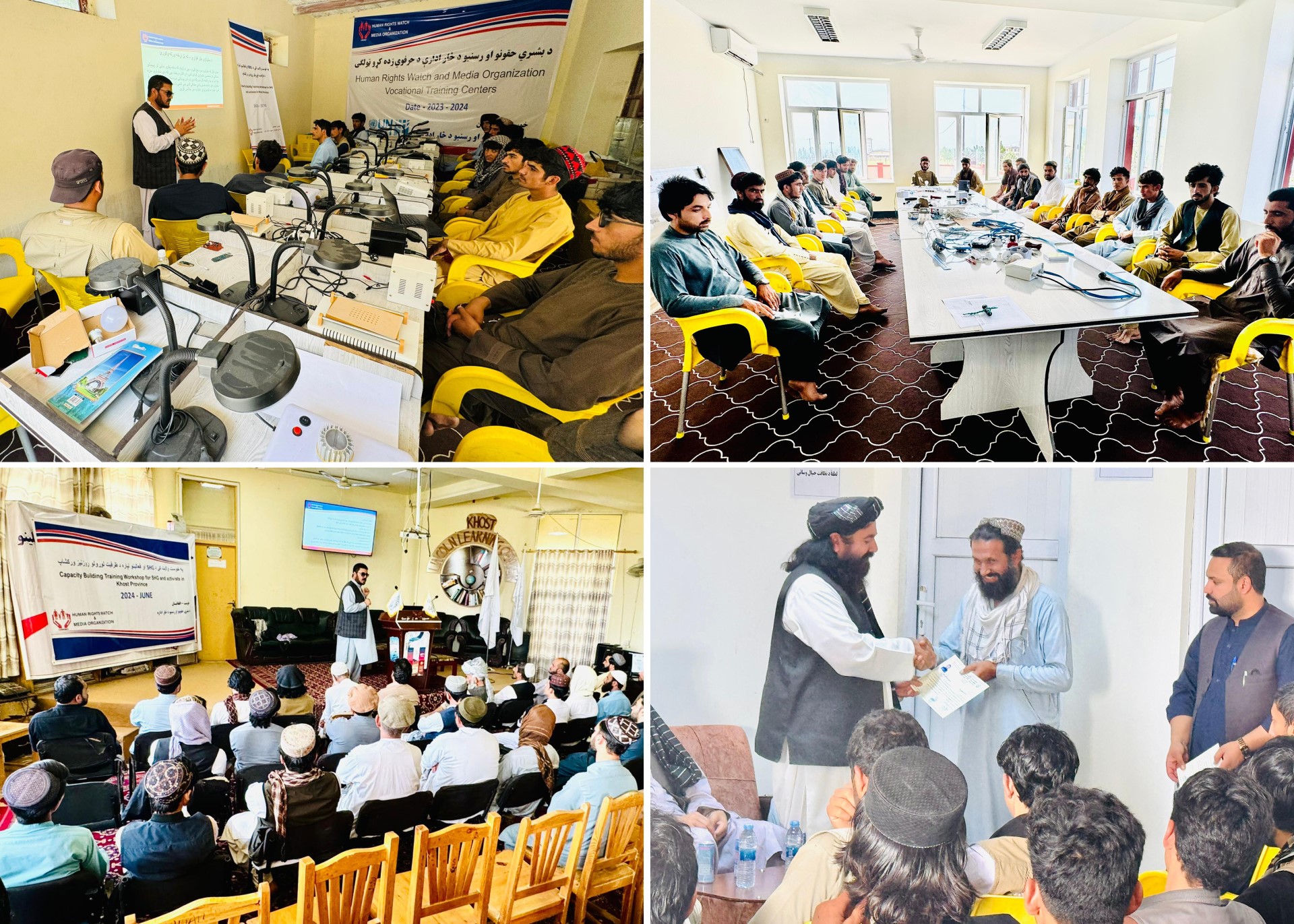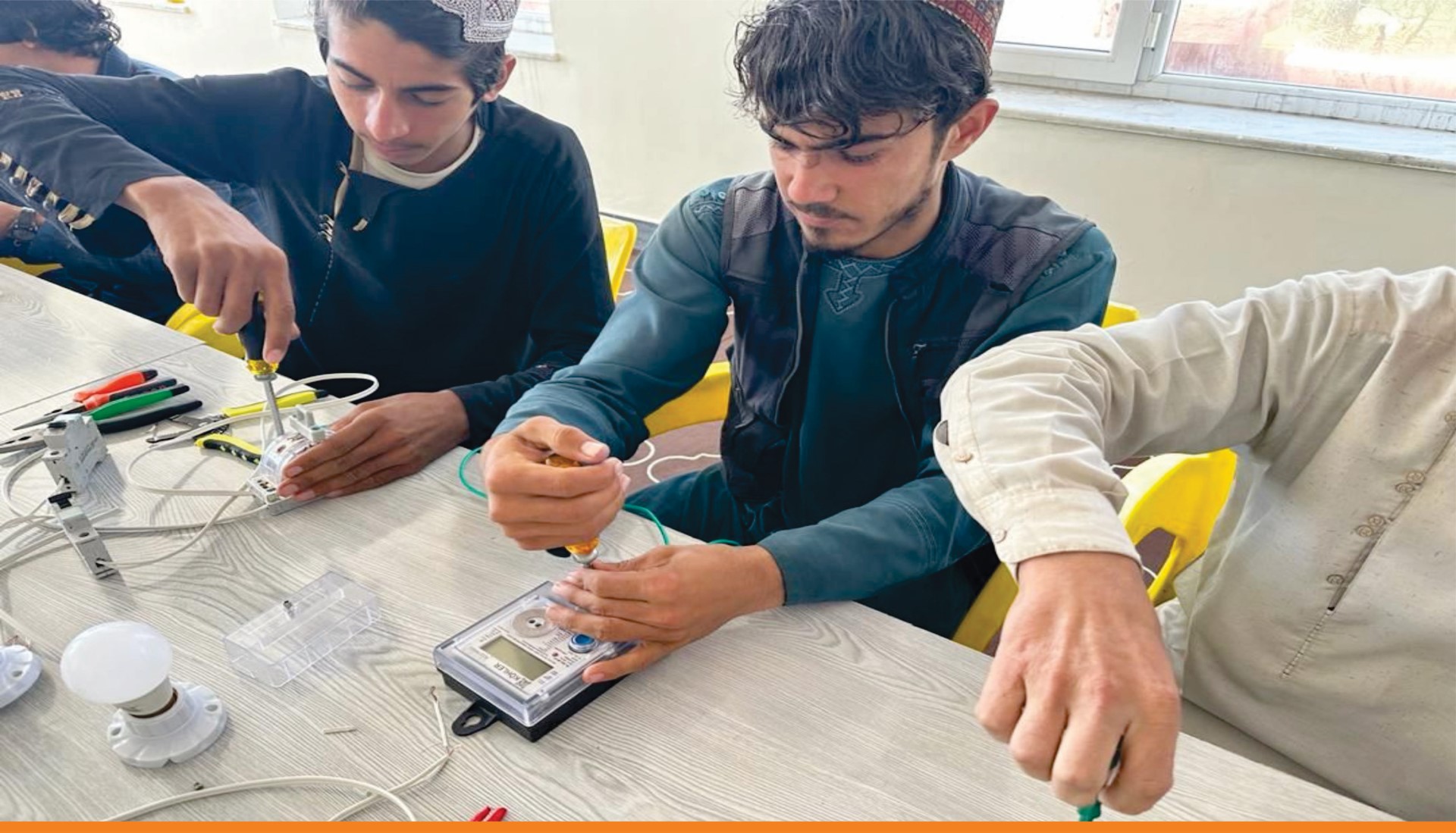Khost is located in southeastern Afghanistan, covering an area of 4,029 square kilometers, with a population of over one million. The province has 12 districts, 3 municipal districts, and 30,000 nomadic families. Khost, a mountainous province, borders the Pakistani tribal region of Waziristan, which shares a 185-kilometer border with Pakistan and is expected to become a major transit city in the future. The Ismailkhel Mandozi district of Khost province is adjacent to the provincial capital, and its people are mostly engaged in manual labor. Many of the young people in this district are unemployed due to a lack of work and sometimes resort to illegal immigration.
HRWMO has launched a mobile phone vocational training program for young people in this district, where approximately 88 people are currently being trained in mobile phone manufacturing and solar panel manufacturing. Omarullah, who has been studying in the mobile phone repair class for about six months, says, “I am very happy because I have now learned a profession. My first job was in a mobile phone repair shop in my district, where I also made mobile phones for people. I can now help my family financially. I am grateful to HRWMO for providing me with the opportunity to study for free and also for paying for transportation so that I can attend classes on time.”
So far, I have built and installed several solar panels for the villagers in my village.
Mandozai and Ismail Khel districts are located in the western part of Khost province, bordering Matun Baba, the central district, to the north and west, Nadarshah Kot district, Khost central district, to the east, Gorboz district to the south, and Tani district to the north.

The people of this district are mostly engaged in manual labor and agriculture, and many young people are forced to migrate illegally due to a lack of work.
HRWMO has established a well-equipped solar vocational training center for young people in this district, where about 22 individuals are currently engaged in solar construction. Abdul Rahman, who has been studying solar panel construction for about six months, says, “I am very happy because I am now learning a profession. So far, I have built and installed several solar panels for my villagers in my village with the help of this center’s training, and now I have the ability to build a solar system and serve my villagers and family.”
Now, I am able to support my family financially, whereas before, I was concerned about my future and the family economy. Most of the time, I made the decision to go to Iran and find my way to a European country so that I could find work and support my family. Now, I am very happy I have a new profession, and I am working in my community. I hope such programs are provided for more Afghan youth who are in need of jobs and trying to generate income for their families through a Halal way. If such programs are extended in the country, our youth will never leave their homeland to become migrants in another country. Despite the vocational training skills we received, we are trained in many aspects of conflict resolution, violence in the community and family, and respect for women’s rights, which are very important topics as our women and sisters face violence and a lack of services.
A tribal elder from Ismail Khel Mandozi district says:
“Many of our youth go to other countries because of poverty. They travel for years. Some die on the way, and some are severely tortured by smugglers. We are very grateful to HRWMO for organizing such vocational training for our youth at home so that they can learn a trade and earn a halal livelihood for their families.”
HRWMO is committed to launching similar programs throughout Afghanistan for the purpose of humanitarian compassion and providing employment opportunities for the country’s young generation so that they can be good economic contributors to their families and support their family economy. On the other hand, our youth will be freed from illegal immigration, serve the people through their professions at home, and also strengthen their family economy.

